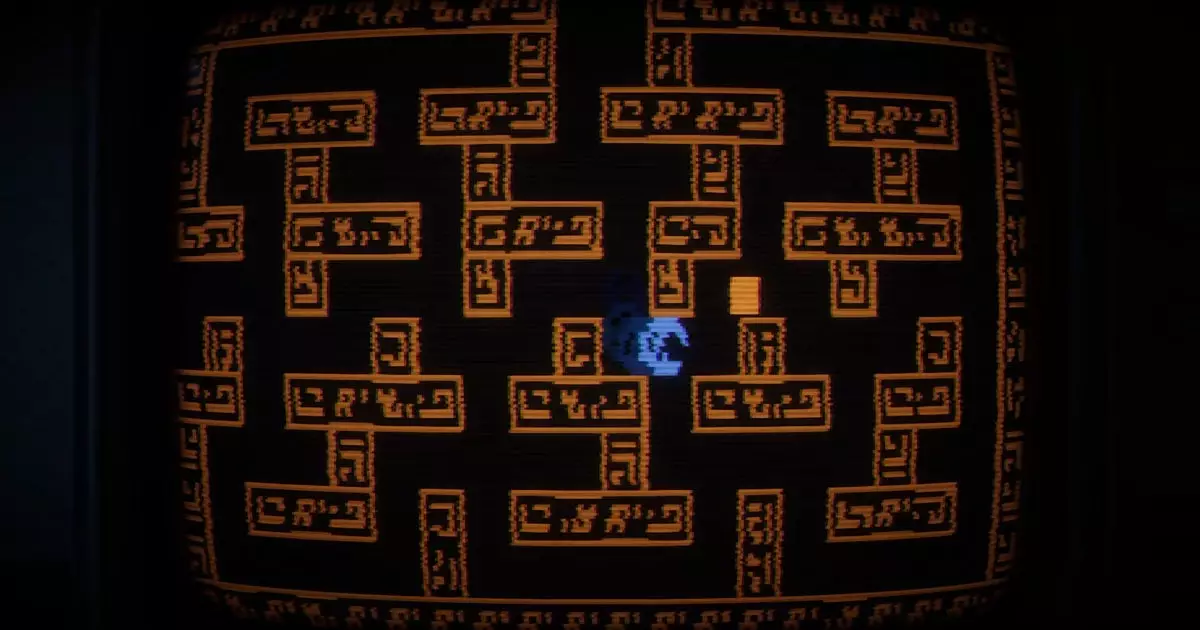In the realm of indie game development, few things are as captivating as the resurgence of retro aesthetics that harken back to the 8-bit era of gaming. The new entry into this nostalgic subgenre is *Tormenture*, a horror game that melds the thrilling elements of classic gameplay with a uniquely dark narrative. Drawing on the eerie atmosphere that characterized many games of the 1980s, *Tormenture* takes players on a harrowing journey through a pixelated landscape that is as haunting as it is mesmerizing.
The game unfolds in a narrative that resonates with those who remember the simplicity of early gaming experiences, but with a distinctly sinister twist. Players alternate between navigating a retro-inspired game environment and the unsettling familiarity of a child’s bedroom, where the blend of memories and nightmares collides. The contrast between the innocence of childhood relics and the latent horror of malevolent spirits evokes a deeply unsettling experience that is effectively captured through its gameplay.
Set against the backdrop of the 1980s, *Tormenture* draws upon elements common in horror vernacular, such as cursed relics and supernatural influences. It artfully channels the impact of notorious predecessors like *Inscryption* and *Pony Island*, yet stands apart with its own brand of psychological engagement. This comparison is not mere hyperbole; the intricate design of the game within a game dynamic reveals layers that challenge players to not just survive, but also to unravel a narrative that is both perplexing and stimulating.
Moreover, the merging of two environments—the charming yet treacherous pixelated world and the increasingly menacing confines of a childhood room—creates a compelling duality present in many horror stories. This juxtaposition serves to heighten tension, as players reconcile the nostalgia associated with their own experiences with the palpable fear inflicted by the game’s eerie design choices.
However, *Tormenture* isn’t without its technical hurdles, particularly for players using lower-end machines. One reviewer lamented the struggle of experiencing the game at only 10fps on an outdated laptop—a challenge that reflects a broader issue faced by many gamers when navigating graphically demanding titles. Despite the aesthetic allure of the game’s 3D environments layered with nostalgic callbacks, the reliance on modern hardware compatibility detracts from the accessibility of the experience.
It’s a paradox where the stunning visual experience could leave behind those who aren’t equipped with high-end devices, which might dilute the poignant connection the game strives to make with its audience. Yet, even with these limitations, early impressions suggest that *Tormenture* offers an intricately woven storyline with engaging puzzles, and that is not something found in your standard indie horror fare.
The design philosophy behind *Tormenture* also shines a light on the cultural implications of 80s style horror games. The darkness that enveloped classic gaming consoles—represented by the persistent grim undertones and evocative soundscapes—seems particularly suited for the Halloween season. Unlike today’s vibrant gaming experiences that often resemble technicolor gardens, *Tormenture* seeks to reclaim the shadowy recesses of memory that once defined the gaming experience.
In an era where screens can illuminate entire rooms, the creeping dread invoked by playing late at night becomes a nostalgic reminder of simpler times. It captures the essence of horror where suspense lay not in graphic detail, but in what lurked just beyond the player’s view, posing questions of existence and experience.
Ultimately, *Tormenture* embodies a compelling blend of nostalgia and innovation, inviting players to engage not only with its vibrant history but also with its forward-thinking design. The game promises to evoke the haunted souls of past gaming eras while forging its own path in the landscape of contemporary horror. As it navigates both the playful and the terrifying, *Tormenture* stands as a testament to the potential of horror gaming to transcend time, allowing new generations to appreciate old ghosts, both literal and metaphorical.


Leave a Reply